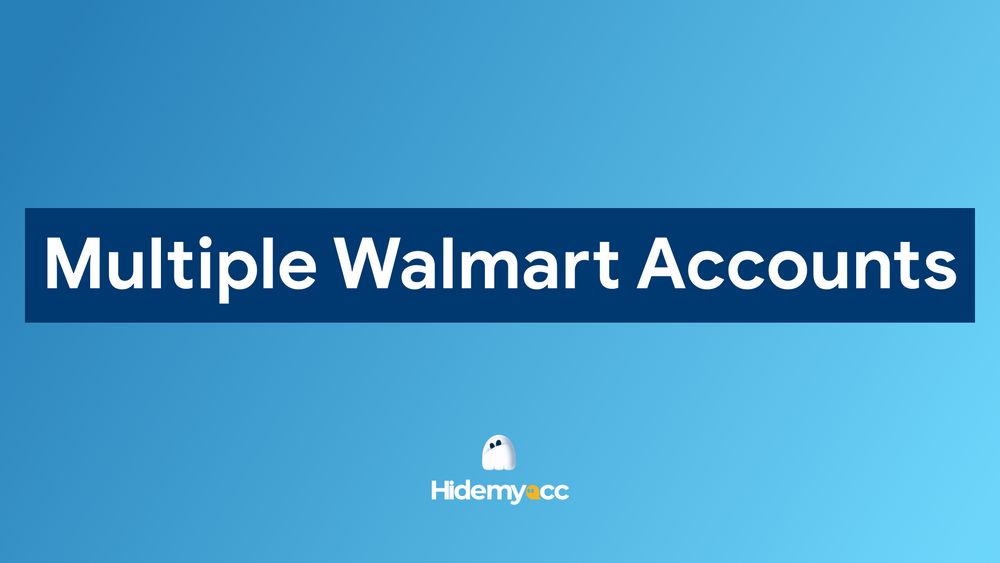The search for Payoneer alternatives has been rising as more users run into high fees, payout limits, or restricted access in certain countries. Several newer platforms now offer more flexible ways to manage international payments with lower costs and better control. Picking the right one can improve how you send, receive, and track money across borders. In this article, Hidemyacc introduces 6 trusted alternatives and helps you choose the one that fits your needs best.
1. How to choose the right Payoneer alternative: 5 key factors
Before you make the switch, it helps to know what to look for in a new platform. Different services offer different strengths, and what works well for one user might not suit another. Here are five key factors to keep in mind:
- Transfer fees and currency conversion rates: Some platforms charge less up front but make up for it with poor exchange rates. Look for providers that use mid-market rates and keep markups to a minimum.
- Supported countries and currencies: Make sure the platform covers the regions where you or your clients operate. Some services are region-specific, while others support a global network with dozens of currencies.
- Speed and reliability of payments: If fast payouts are important to you, check the average processing times. Delays in receiving money can affect your cash flow, especially for freelancers or e-commerce sellers.
- Business features and integrations: Beyond basic transfers, some platforms offer built-in invoicing, batch payments, or direct integrations with tools like Shopify, QuickBooks, or Upwork. These can help automate your workflow.
- Security and reputation: Stick with licensed platforms that follow financial regulations. Transparent fee structures, responsive support, and positive user reviews are all signs you’re dealing with a trustworthy provider.
Once you’ve considered these factors, you’ll be in a better position to choose a Payoneer alternative that actually fits your needs.
2. Quick look: Compare the best Payoneer alternatives
Now that you've seen the key factors to consider, this clear and concise table helps you compare six top Payoneer alternatives at a glance:
|
Platform |
Best For |
Fees & FX Markup |
Supported Currencies |
Payout Methods |
Standout Feature |
|
Wise |
Individuals & small businesses |
50+ currencies (hold & convert; free balance holding) |
Local bank transfers, debit card |
Transparent mid‑market rates |
|
|
Airwallex |
Startups & global companies |
FX markup ~0.5% for major, 1% others; no fees for local transfers; SWIFT $15–25 |
60+ currencies; payouts to 150+ countries |
Local bank rails, corporate cards |
API-driven payout, multi-currency wallets |
|
Revolut Business |
Freelancers & digital nomads |
Low standard plan fees; may incur charges over free limits |
25+ currencies on core plan |
Bank transfers, virtual cards |
Multi-currency account with expense tools |
|
Tipalti |
Platforms with mass payouts |
Custom enterprise pricing depending on volume |
190+ currencies |
Bank transfers, PayPal, others |
Automation, tax & compliance built in |
|
Mural Pay |
Crypto-savvy small businesses |
Very low fees via stablecoin |
10+ currencies + stablecoins |
Stablecoin wallets, bank |
Real-time tracking via blockchain |
|
PayPal / Stripe |
General/e-commerce use |
Moderate fees, currency conversion ~2–3% |
20+ currencies |
Bank transfers, PayPal balance |
Easy setup, global brand trust |
Each platform has its advantages, depending on what matters most to you, whether it’s lower fees, faster access to funds, or better tools for business management.
3. The 6 best Payoneer alternatives reviewed in detail
Now that you’ve seen how these platforms stack up in a quick comparison, it’s time to look more closely at what each one offers in practice. Some focus on speed, others on cost efficiency or business tools. The best choice depends on how you manage international payments and what features matter most to your workflow.
3.1. Wise Business
Wise (formerly TransferWise) is one of the most trusted Payoneer alternatives when it comes to transparent pricing and global reach. It’s widely used by freelancers, small businesses, and international teams who need a simple, low-cost way to send and receive money across borders.
These are key highlights of Wise Business:
- Mid-market exchange rates: Wise uses the real exchange rate you see on Google, with no hidden markups. This gives you much better value than platforms that quietly add a 2–3% margin on top of the FX rate.
- Clear, low fees: You pay a small, upfront fee that’s shown before you confirm the transfer. Most international transfers cost between 0.4% and 1%, depending on the route and currency.
- Multi-currency accounts: Hold and manage over 50 currencies in one place. You can also receive payments like a local with dedicated account details in USD, EUR, GBP, AUD, and more.
- Fast, reliable transfers: Many transfers arrive on the same day, and some even within minutes. Wise has a strong record for speed and accuracy.
- Useful for growing businesses: Batch payments, expense tracking, business debit cards, and Xero integration make Wise a great tool for managing international finances.
With these features, Wise Business is ideal for:
- Freelancers and consultants who invoice overseas clients
- Remote teams and digital agencies with global staff
- Small businesses looking to cut down on FX and payout costs
If you’re looking for a service that’s honest about fees and reliable with cross-border payments, Wise is one of the best Payoneer alternatives to consider.
3.2. Airwallex
Airwallex is a strong Payoneer alternative designed with modern businesses in mind. It offers a powerful set of tools for managing global payments, especially for startups and companies with international customers, suppliers, or remote teams. Its focus on scale, automation, and API access makes it ideal for growing businesses that need more than just basic transfers.
These are key highlights of Airwallex:
- Competitive FX rates and low fees: Airwallex applies a small markup on exchange rates, typically between 0.3% and 0.6% for major currencies. Local transfers are often free. International SWIFT payments may come with a fee, usually ranging from $15 to $25 depending on the destination.
- Multi-currency support: The platform supports over 60 currencies and enables payouts to more than 150 countries. This flexibility is essential for companies operating across borders.
- Powerful API access: Developers can use Airwallex's APIs to automate payments, issue virtual accounts, and connect directly with business systems or marketplaces.
- Virtual and physical cards: Businesses can issue cards to employees with customizable limits and controls, making it easier to manage team spending across multiple regions.
- Business account features: Companies can set up multiple sub-accounts for different teams or projects, assign user roles, and streamline reconciliation processes.
With these features, Airwallex is best suited for:
- Startups expanding into international markets
- SaaS platforms and marketplaces that handle frequent payouts
- E-commerce businesses working with global suppliers and customers
If your business is growing and you need more advanced tools to handle international payments efficiently, Airwallex is one of the most capable Payoneer alternatives available today.
3.3. Revolut Business
Revolut Business has become a popular choice among freelancers, remote teams, and small businesses that want more control over how they spend, hold, and manage money across multiple currencies. It combines traditional business banking features with modern fintech flexibility, all in one easy-to-use platform.
These are key highlights of Revolut Business:
- Multi-currency accounts: Revolut lets you hold, exchange, and transfer in more than 25 currencies from a single account. This is useful if you work with international clients or suppliers.
- Competitive exchange rates: Currency conversions use interbank rates during market hours. While standard plans include a monthly allowance for free exchanges, fees may apply once you exceed that limit.
- Integrated business tools: The platform offers built-in invoicing, payment requests, and budgeting tools. You can also automate workflows and track expenses directly from the dashboard.
- Physical and virtual cards: Revolut makes it easy to issue employee cards with custom spending controls. You can use them for online purchases, travel, or subscriptions.
- Marketplace and software integrations: Revolut connects with platforms like Xero, Slack, and Zapier, allowing for better automation and financial management.
With these capabilities, Revolut Business is ideal for:
- Freelancers and digital nomads who work with international clients
- Startups looking for a lightweight finance solution
- Small teams managing multi-currency expenses
If you want a modern, all-in-one business account with flexibility and control, Revolut is a strong alternative to Payoneer.
3.4. Tipalti
Tipalti is not just a payment tool. It is a full-scale payout and finance automation platform built specifically for companies that need to send large volumes of payments across the globe. If your business handles payments to hundreds or thousands of partners, affiliates, or freelancers, Tipalti may be the most capable Payoneer alternative available.
These are key highlights of Tipalti:
- Mass payout capability: Tipalti supports payouts to over 190 countries and offers multiple payment methods, including bank transfer, PayPal, prepaid debit card, and even global ACH.
- Built-in tax and compliance features: The platform automates collection of W‑9, W‑8BEN, and VAT forms and helps ensure your payments stay compliant with global regulations.
- Supplier self-service portal: Vendors and payees can upload their payment details and tax forms directly, reducing back-and-forth emails and saving your finance team time.
- Automated workflows: Tipalti handles everything from onboarding to payment reconciliation and invoice processing. This is especially useful for marketplaces, affiliate networks, and media companies.
- Custom branding and white-label options: You can fully brand the payment experience to keep it consistent with your platform or service.
With these strengths, Tipalti is best suited for:
- SaaS platforms or affiliate networks with large payout volumes
- Finance teams looking to streamline operations and reduce manual work
- Businesses with strict tax and regulatory compliance needs
If your company has outgrown manual payments and needs a scalable, automated solution, Tipalti is a professional-grade alternative to Payoneer.
3.5. Mural Pay
Mural Pay is a modern alternative to Payoneer that focuses on fast, low-cost payments using blockchain technology. It allows businesses to send stablecoin payouts across borders with greater transparency and speed, making it a good fit for companies open to crypto-based infrastructure but still operating in traditional industries.
These are key highlights of Mural Pay:
- Stablecoin transactions: Mural lets you send payments in widely accepted stablecoins like USDC and USDT. This helps avoid traditional bank delays and reduces currency volatility.
- Low-cost global transfers: Using blockchain networks enables Mural to offer significantly lower fees than traditional payment rails, especially for high-volume international payouts.
- Real-time tracking: Every payment is traceable on the blockchain, providing visibility and accountability for both sender and recipient.
- Multi-currency support: In addition to stablecoins, Mural supports several fiat currencies and offers seamless conversion where needed.
- Developer tools and API access: Businesses can automate workflows and integrate Mural into their own systems using robust APIs.
With its unique approach, Mural Pay is ideal for:
- Tech-forward startups and platforms that already use crypto
- Companies operating in regions with limited access to traditional banking
- Businesses that want faster, cheaper cross-border payments with on-chain transparency
If you’re looking for a Payoneer alternative that blends blockchain speed with business-grade usability, Mural Pay is a strong contender worth exploring.
3.6. PayPal/Stripe
For many users, PayPal and Stripe are familiar names when it comes to online payments. While they aren’t perfect replacements for every Payoneer use case, both offer strong, well-supported options for businesses that need fast, secure, and globally recognized payment solutions.
These are key highlights of PayPal and Stripe:
- Global availability: Both platforms are available in over 200 countries and support multiple currencies, making them accessible almost anywhere your clients or customers might be.
- Built-in checkout and payment tools: PayPal offers direct payment links, subscription billing, and mass payouts. Stripe provides customizable checkout flows, invoicing, and embedded payment experiences.
- Fast transfers and multiple payout methods: Users can withdraw to local bank accounts, cards, or digital wallets. In many cases, funds are available within minutes or a few business days.
- Widespread trust and user familiarity: Because of their brand recognition, many customers are more comfortable paying through PayPal or Stripe, which can improve your conversion rates.
- Developer integrations: Stripe is especially popular with tech teams thanks to its powerful API. It’s often used by SaaS platforms, e-commerce apps, and marketplaces for seamless payment automation.
With their flexibility, PayPal and Stripe are great choices for:
- Small to medium-sized businesses that want simple setup
- Online sellers or platforms serving global customers
- Freelancers who value brand trust and fast payouts
If you're looking for a reliable, widely accepted alternative to Payoneer that requires little onboarding time, PayPal or Stripe may be the most practical solution.
>>> Read about PayPal:
- Can I Have Multiple PayPal Accounts? Genius Hack Unveiled
- How to cancel a PayPal account and create a new one without getting banned?
>>> What is Stripe account? A simple overview for beginners
4. How to switch from Payoneer to another platform
If you're ready to move away from Payoneer, transitioning to a new payment platform can be done in just a few simple steps. Here's how to make the switch smoothly and avoid common issues along the way.
Step 1: Withdraw your remaining balance
Start by logging into your Payoneer account and transferring any available funds to your linked bank account. Be sure to check for pending payments or auto-withdrawal settings that may still be active.
Step 2: Update your payout settings on external platforms
If you get paid through sites like Upwork, Fiverr, Amazon, or affiliate programs, head to your account settings and change your payout method. Most platforms support alternatives like Wise, PayPal, or local bank transfers.
Step 3: Set up your new payment account
Register for the new platform you’ve chosen and complete the identity verification process if required. Link your bank account or card, and configure currency preferences to match how you usually receive payments.
Step 4: Test a small transaction
Before switching fully, try sending or receiving a small amount to ensure everything works correctly. This helps catch any setup errors early without risking a large payment.
Step 5: Notify your clients or partners
If you invoice clients directly or receive manual transfers, make sure to let them know you’re changing your payment method. Include your new account details in your next invoice or communication.
Step 6: Keep your Payoneer account open temporarily
There’s no rush to close your Payoneer account. You can keep it active as a backup while testing your new platform. Once you’re confident everything is running smoothly, you can decide whether to deactivate it later.
By following these steps, you can switch away from Payoneer without disrupting your cash flow or business operations.
5. Manage multiple payment accounts safely with Hidemyacc
If you're working across several platforms like Wise, PayPal, or Stripe, keeping each account separate and secure is essential. Using the same browser environment or IP address across accounts can lead to verification issues, flagged logins, or even restricted access.
Antidetect browser Hidemyacc solves this by creating fully isolated browser profiles. Each profile has its own fingerprint, login cookies, and proxy settings, allowing you to manage multiple accounts without overlap or detection. This is especially useful for freelancers, remote workers, affiliate marketers, or business owners who operate internationally.
When switching away from Payoneer or testing new platforms side by side, Hidemyacc gives you the flexibility and protection you need to keep every account stable and under control.
5. Conclusion
Looking into Payoneer alternatives is a smart step for anyone dealing with cross-border payments regularly. Whether you're aiming for lower costs, smoother transfers, or better support for your business, the right platform can make a big difference.
If you plan to manage multiple accounts across different services, pairing your payment setup with a browser isolation tool like Hidemyacc helps keep sessions separate and avoids account conflicts during the transition.
Making the switch doesn't take much, but it can lead to more control, better cash flow, and a smoother workflow overall.
6. FAQ
1. Which is better than Payoneer?
Wise is better for low fees and real exchange rates. Airwallex is better for business scalability.
2. Is Stripe or Payoneer better?
Stripe suits online businesses and developers. Payoneer is better for receiving payouts from freelance platforms.
3. Which one is best, Payoneer or Wise?
Wise is cheaper and more transparent. It’s ideal for direct transfers and personal control.
4. Is Payoneer or Skrill better?
Payoneer is more reliable for business use. Skrill suits smaller, instant transactions but has higher fees.
5. Should I use Payoneer or PayPal?
PayPal is more universal. Payoneer often has lower withdrawal fees for business payments.
6. Is Revolut like Payoneer?
No. Revolut is more of a digital bank, while Payoneer focuses on receiving global business payments.
7. Why is Wise cheaper than PayPal?
Wise uses real exchange rates and lower fixed fees. PayPal adds hidden currency markups.
8. What is the disadvantage of using Payoneer?
Higher fees, slower transfers, and limited country support compared to newer alternatives.






